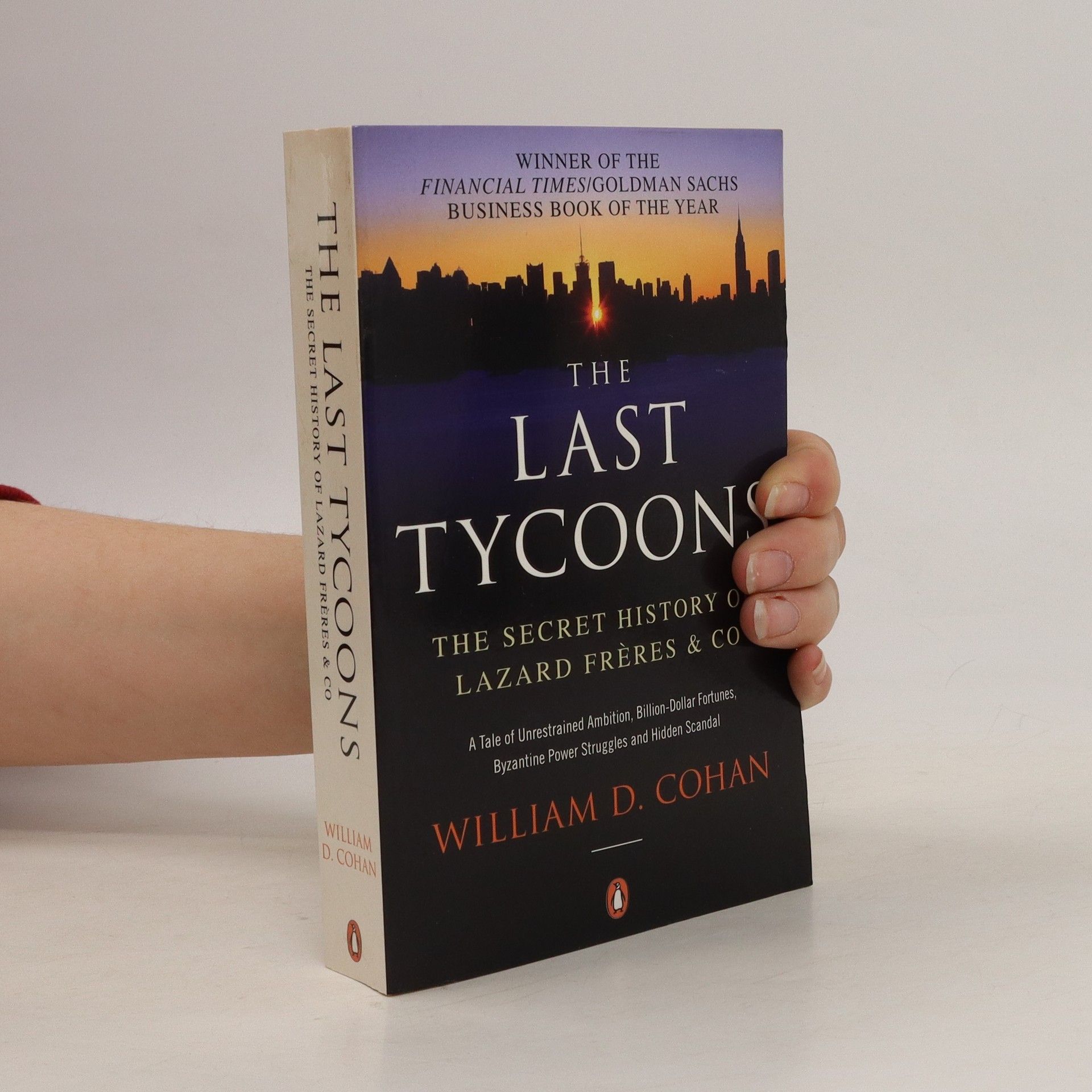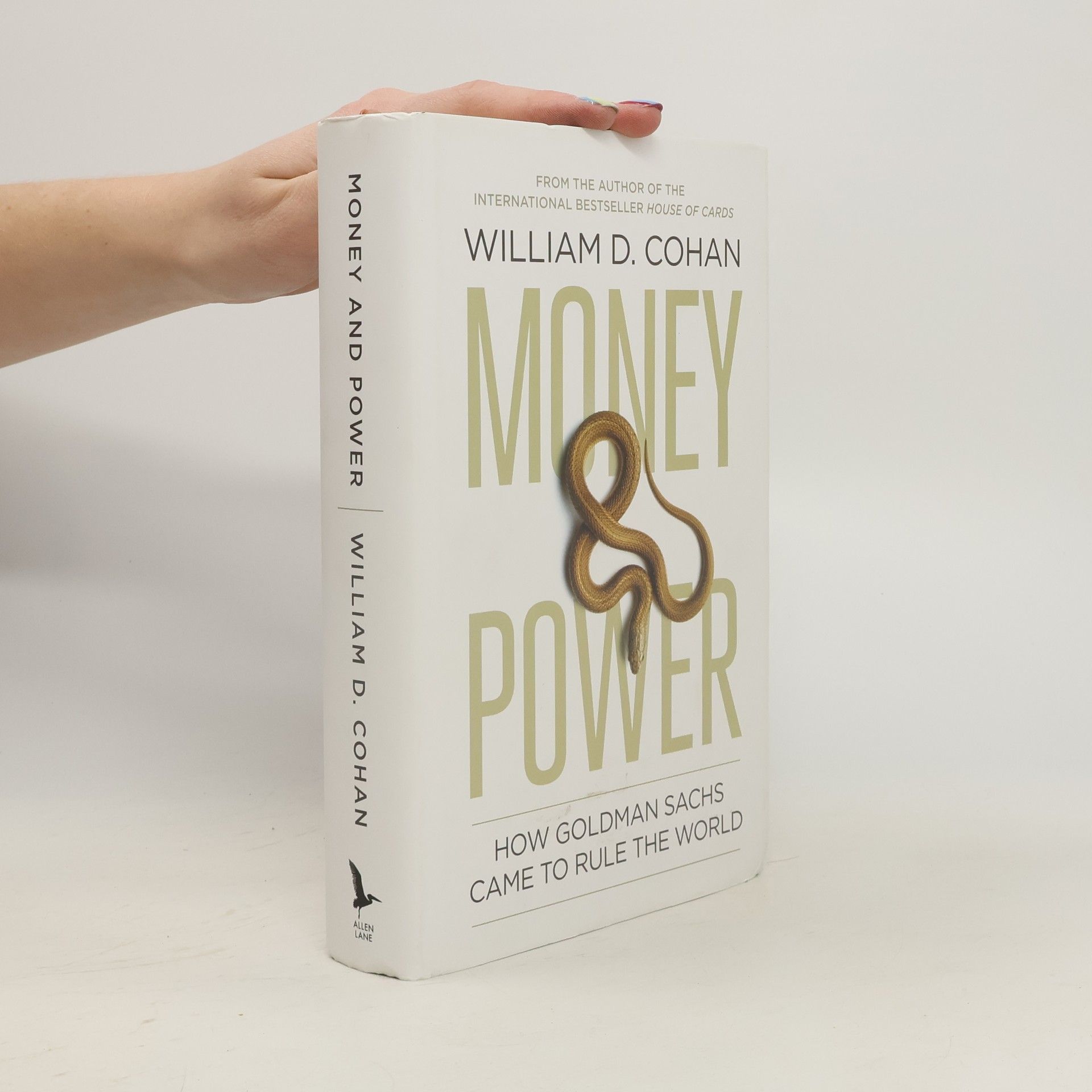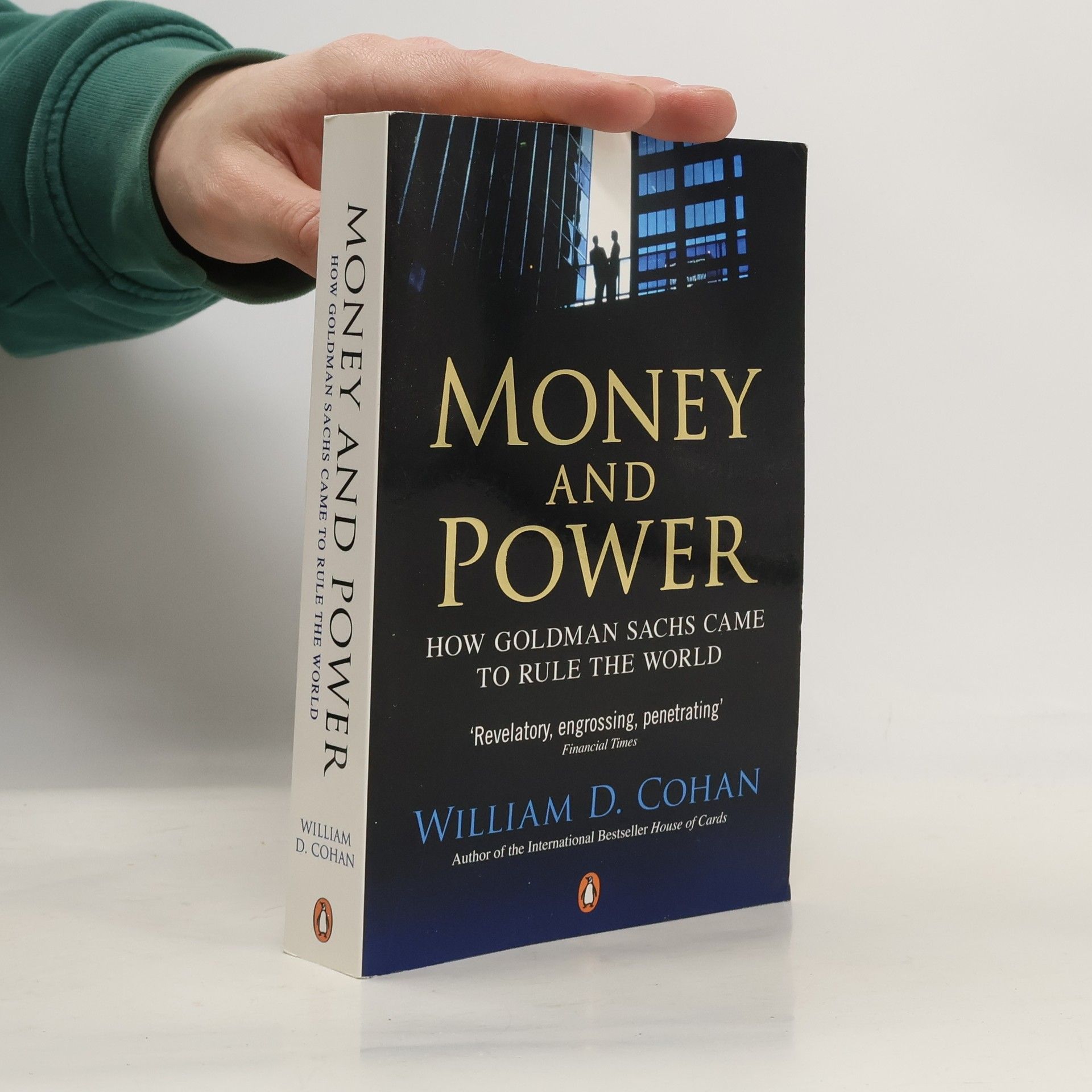Money and power : how Goldman Sachs came to rule the world
- 662 stránek
- 24 hodin čtení
Interesting views and narrative on the BIG POWER of Money and who, how handles that
William Cohan se ponořil hluboko do světa financí a korporací, aby odhalil pravdu o zákulisních praktikách a lidské povaze. Díky svým dlouholetým zkušenostem z Wall Street přináší do svého psaní jedinečnou perspektivu, která zaujme každého čtenáře. Jeho díla zkoumají mocenské hry, etické dilemata a dopady rozhodnutí na globální ekonomiku. Cohan mistrně propojuje detailní reportáž s poutavým vyprávěním, což z něj činí jednoho z nejvýznamnějších současných autorů píšících o byznysu.






Interesting views and narrative on the BIG POWER of Money and who, how handles that
The dramatic rise and unimaginable fall of America's most iconic corporation is explored by New York Times bestselling author and financial journalist William D. Cohan. The General Electric Company epitomized American ingenuity and industrial power, having developed essential inventions like the lightbulb and jet engine. At its peak, GE was the world's most valuable and admired company, with a reputation for financial and leadership success. However, even during its zenith, cracks began to appear in its foundation. Cohan offers a masterful re-appraisal of GE, arguing that its incredible journey serves as a lens to understand American capitalism. He traces the company's history from its founding and innovations to its rapid growth through acquisitions, examining its management culture and pioneering doctrine of shareholder value. Cohan reveals that GE was not immune to the hubris and mistakes that have plagued many corporations. Through a rich narrative, he punctures the myth of GE, detailing how a once-great company ended up broken and in tatters, presenting a cautionary tale for the ages.
When, in late 2008, the dust finally started to settle on one of the worst financial crises in history, only one Wall Street institution still stood virtually unassailed - Goldman Sachs. This title peers behind the curtain to give us the inside story of why Goldman is so profitable.
'House of Cards' is a narrative about corporate greed on a truly epic scale. Cohan relates how the lack of foresight and regulation in an uncertain economy forced the government and Wall Street to take increasingly desperate and unprecedented measures to stop the carnage before the entire economy melted down.
Cohan explores the mysterious and secretive world of Lazard Freres & Co., one of the country's most storied investment firms, and presents a compelling portrait of Wall Street through the tumultuous history of this exalted and fascinating company.
If you like your smartphone or your widescreen TV, your car or your pension, then, whether you know it or not, you are a fan of Wall Street. William D. Cohan, bestselling author of House of Cards, has long been critical of the bad behaviour that plagued much of Wall Street in the years leading up to the 2008 financial crisis, and, as an ex-banker, he is an expert on its inner workings as well. But in recent years he has become alarmed by the vitriol directed at the bankers, traders and executives who keep the wheels of our economy turning. Why Wall Street Matters is a timely and trenchant reminder of the dire consequences for us all if the essential role these institutions play in making our lives better is carelessly curtailed.